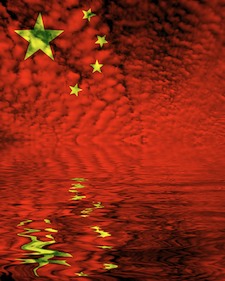Apple has removed software allowing internet users to skirt China’s “Great Firewall” from its app store in the country, the company confirmed Sunday, sparking criticism that it was bowing to Beijing’s tightening web censorship.
Chinese internet users have for years sought to get around heavy internet restrictions, including blocks on Facebook and Twitter, by using foreign virtual private network (VPN) services.
Beijing mandated in January that all developers must obtain government licenses to offer VPNs, leading to the Apple decision.

“We have been required to remove some VPN apps in China that do not meet the new regulations,” Apple told AFP in a statement Sunday.
“These apps remain available in all other markets where they do business.”
Two major providers, ExpressVPN and Star VPN, said on Saturday that Apple had notified them that their products were no longer being offered in China. Both firms decried the move.
“Our preliminary research indicates that all major VPN apps for iOS have been removed,” ExpressVPN said in a statement, calling Apple’s move “surprising and unfortunate”.
“We’re disappointed in this development, as it represents the most drastic measure the Chinese government has taken to block the use of VPNs to date, and we are troubled to see Apple aiding China’s censorship efforts,” it added.
Star VPN wrote on Twitter: “This is very dangerous precedent which can lead to same moves in countries like UAE etc. where government control access to internet.”
China has hundreds of millions of smartphone users and is a vital market for Apple, whose iPhones are wildly popular in the country.
The company unveiled plans earlier this month to build a data centre in China to store its local iCloud customers’ personal details.
While China is home to the world’s largest number of internet users, a 2015 report by US think tank Freedom House found that the country had the most restrictive online use policies of 65 nations it studied, ranking below Iran and Syria.
But China has maintained that its various forms of web censorship are necessary for protecting its national security.
The national VPN crackdown comes after the passing of a controversial cybersecurity bill last November that tightened restrictions on online freedom of speech and imposed new rules on service providers.
Since the regulation took effect this June, authorities have closed dozens of celebrity gossip blogs and issued new rules around online video content to eliminate programs deemed offensive.












